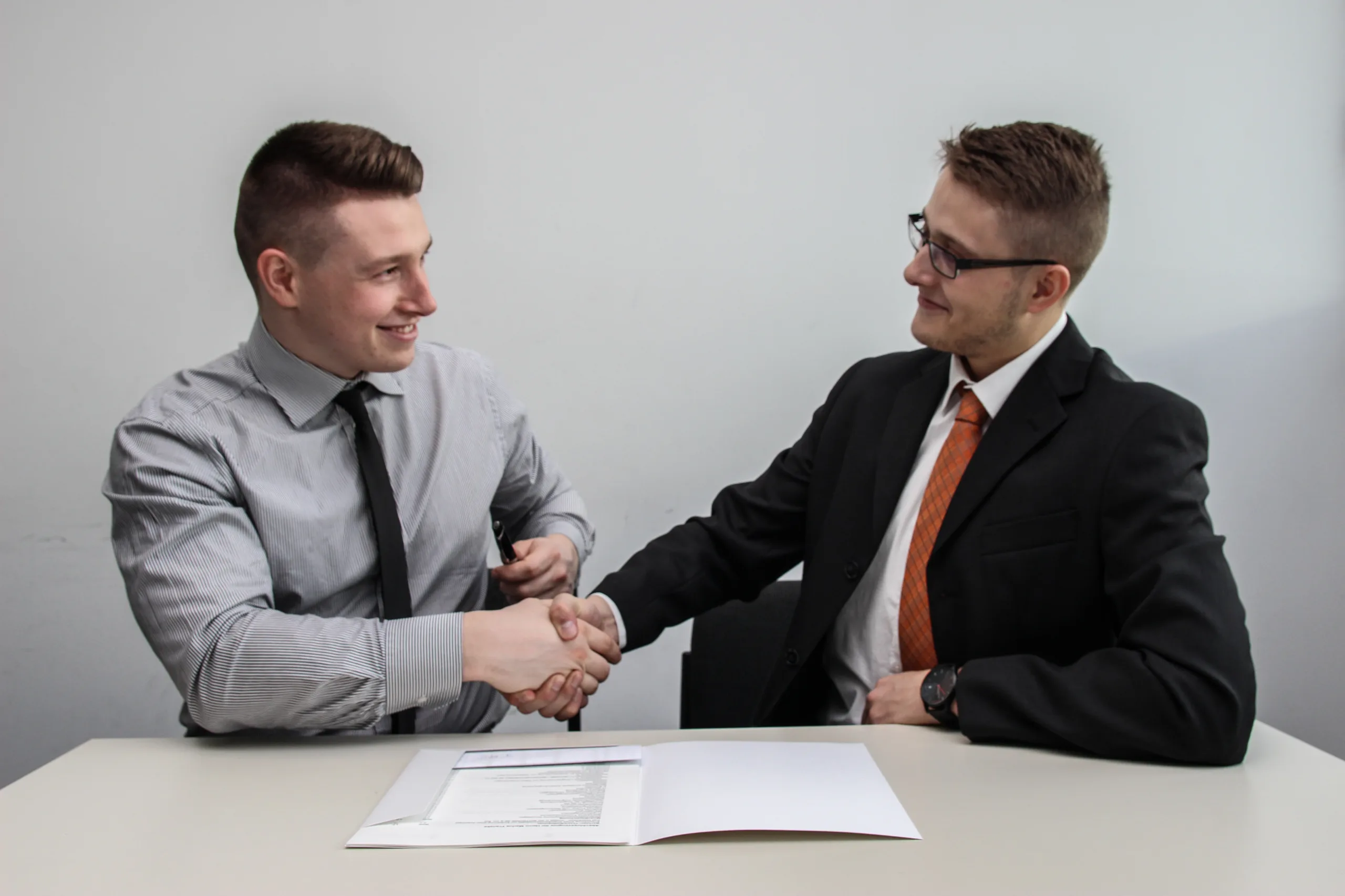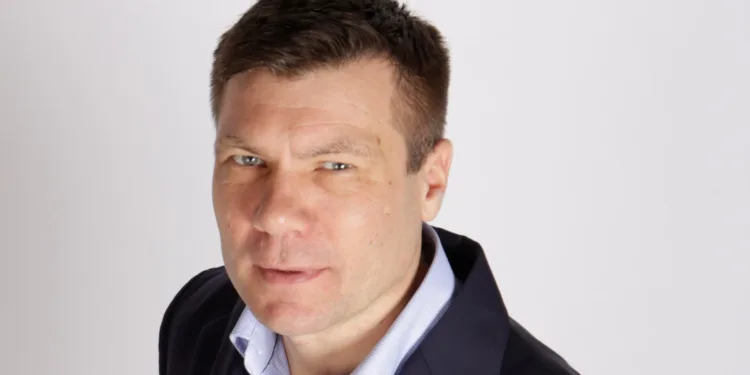Read This magazine discusses crucial interview skills with Nick Ronald of Toastmasters International.
Regardless of how confident you are in daily life, the prospect of a job interview tends to bring on the jitters. We can find ourselves feeling anxious and nervous. This is unsurprising when so much hangs on how well you present yourself. Ten years ago I was finding it very difficult to get the role I wanted. To help I joined Toastmasters International, luckily there was a club nearby. My goal was to improve my public speaking skills and build my overall confidence. I discovered that being interviewed is a form of public speaking. I learnt a lot and was delighted when I got the job offer that I wanted.
If only I had known the following sooner:
Why do job interviews give us the jitters?
Fear or anxiety of public speaking and job interviews is all too common. We dread job interviews because they tap into many of our most common fears:
- Fear of the unknown: we have no idea what the person interviewing us will be like, what questions they will ask or how difficult the questions will be
- Fear of being judged: we’ll be facing one or more people sitting across the table, judging us, forming an opinion about our suitability based on the answers we give.
- Fear of rejection: With interviews, its either acceptance or rejection. You either get the job or you don’t. So, it’s natural to be fearful of rejection.
- Fear of selling yourself: Selling is hard and selling yourself is the hardest thing for most people to ‘sell’.
You can reduce your fear by preparation and practice. The best way to build a great relationship and influence people is to create rapport with them. In other words, create a connection, a feeling of mutual understanding, of seeing common ground and liking and respecting each other. Building rapport is an essential step to interview success.

Managing first impressions
We have all heard the saying; ‘never judge a book by its cover’. Well, we all do that, and we will always do that. It is human nature to make an instant first impression of someone. In a job interview, you need to make sure that first impression is a positive one.
As soon as you walk into the room, make sure you walk purposefully up to the interviewer(s) or if it is a zoom interview, be ready for when you first see them. Shake hands, if appropriate, with a firm relaxed grip. And, most important of all, look them in the eye and smile. Throughout the interview you need to make sure you maintain a natural, even eye contact and smile. Both of these body language actions are the most obvious way people will judge our confidence and trust in us. The most important part of any public speaking is the beginning and the end. You must aim to change their state. Through your words and actions you want them to feel excited to have found you.
An example is my own experience, is when I went for an interview with a housing charity and I arrived an hour early. I sat in the reception area and went through my notes, as I sat there, my nerves built up and I was probably, I will admit, even talking to myself as I endlessly rehearsed my lines.
People came in and out of the reception area, with some people stopping to talk to the receptionist or pick up people who were also sat waiting for a meeting. I didn’t pay any attention as I sat absorbed in my preparation, with notes strewn around me, increasingly flustered as I tried to memorise everything.
When I was eventually called for the interview, I immediately recognised one of the interviewees as one of the people who had picked up people from reception earlier. The first impression, I gave wasn’t the moment, I strode into the room, confident and with a smile but had been earlier when I sat surrounded by my notes and rehearsing my answers out loud.
Remember, you can always make a better, improved 2nd or 3rd impression but you only ever have one chance with your first impression. I couldn’t help but wonder whether the first impression, I gave the interviewer in reception in the hour before the actual interview affected the final decision. As soon as you enter the venue for any meeting, you must be always aware of the impression, you may be giving as you may not always know at the time, the importance of the people, you may meet.
Body language speaks volumes
Your body language should act to reinforce the rapport you create. When you listen to a question from one of the interviewers, turn slightly to face whomever you are talking to and nod your head. This gives the signal that ‘I understand, I agree and am listening to you’.
Using hand gestures can help to reinforce what you are saying if they are natural and not excessive. Generally, open palm gestures are good and encourage communication. You should avoid any pointing or clenched first gestures which can be seen as arrogant or aggressive.

Make good use of names
Using the interviewer’s name is a good way to establish rapport as we are automatically programmed to react to our own name. Imagine the difference in the answer; ‘Well, there was one time, when I worked at….’ And then the same phrase, but with their name; ‘Well, John, there was one time, when I worked at….’.
Key lesson: I NEVER we
You are selling yourself, so never give other people the credit for work you have done or your achievements. The interviewers don’t care what your team or colleagues achieved, only what YOU achieved. So, with every single example, you must say; ‘I created, I managed, I achieved. It is always I and NEVER ‘we.
STAR approach
We can’t talk about job interview success without a reminder of the STAR method for answering competency questions, such as:
- Tell us about a time…
And
- Do you have an example of…
Situation: Briefly set the scene; what was the problem you had to solve or improve
Task: what were the challenges, what approach did you take
Action: WHAT specific actions did you take to solve the problem and improve the situation
Result: Demonstrate the successful outcome of your actions (and how you measured the success of the outcome).
Strong conclusion
Like any good speech, you must end with a strong conclusion when an interview ends. You need to make sure they remember you. There are two ways you can do this (and you can use both). One is by asking questions which helps to engage them and shows your interest in the role. The second is by finishing with a strong concluding statement like; “thank you for your time today, I have enjoyed talking to you. I am excited to be applying for this role as I see this role as a great fit for my skills and experience and I know I can make a difference to the success of the xx project / team. I look forward to hearing from you again soon”. Craft your concluding statement to include three bullet points of why you should get the job.
Keep smiling and maintaining good eye contact as you deliver your concluding statement.
Spend time on research and other prep
As with any presentation or public speaking, you must know your audience before you prepare your speech. It is the same with a job interview. It is increasingly likely that they will research you on social media when looking at your application, so you should do the same. Google your interviewers or look them up on LinkedIn, as you might find that you have something in common which you can then use as a point of reference in establishing rapport on the day. Connections help build trust and rapport and you can make a note to mention something (a common interest) you share in the interview.
Read through the job description. What are they asking, what are looking for, what are the essential requirements? You need to prove in your answers that you are what they are looking for and you can do what is required. I assume that all people, I meet will google me and this enables me to be better prepared, if they ask me about something they have seen on social media, in particular LinkedIn.
Practice is essential and the more you practice your answers, familiarise yourself with your CV and even do a mock interview with a friend, the more you will feel you know what you need to say and are ready for the interview. Practice is one of the biggest creators of confidence in public speaking.
The power of the pause
In Toastmasters, we are taught the power of the pause. If you forget what you are saying, take a pause. If you are stressed or anxious, take a pause. If you are speaking too quickly, take a pause. If you want to let a point sink in or have more impact, take a pause. The simple pause can be a very powerful tool. So, if you can’t think of an answer to a question, simply smile and take a pause.

And last but not least
When you don’t get the job always request feedback. Not every employer will give it but many will. What you will learn from the feedback you receive can be invaluable. Use it to improve the way you come across in your next interview. Understanding what you need to improve is essential in order to progress. As with any form of public speaking practice makes perfect! Make most of what you learn in the process, keep practicing and you’ll get the perfect job for you.
I wish you all the best for your next job interview.
ABOUT THE NICK
Nick Ronald is a member of Toastmasters International, a not-for-profit organisation that has provided communication and leadership skills since 1924 through a worldwide network of clubs. There are more than 400 clubs and 10,000 members in the UK and Ireland. Members follow a structured educational programme to gain skills and confidence in public and impromptu speaking, chairing meetings and time management. To find your nearest club, visit www.toastmasters.org










